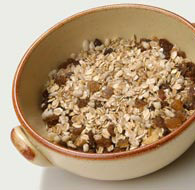When is it too late for me to quit smoking? (Never! Health benefits begin as soon as 20 minutes after quitting.)
Posted in General Health & Wellness on April 21, 2011. Last modified on January 31, 2018. Read disclaimer.
If you're a smoker or know someone who smokes, there's good news!
It's never too late to quit smoking: According to the Centers for Disease Control and Prevention (CDC), within
20 minutes after you smoke that last cigarette, your body begins a series of changes that
continue for years.
| Time after quitting | Health benefits | |
| 20 minutes | Your heart rate drops. | |
| 12 hours | Carbon monoxide level in your blood drops to normal. | |
| 2 weeks to 3 months | Your heart attach risk begins to drop. Your lung function begins to improve. |
|
| 1 to 9 months | Your coughing and shortness of breath decrease. | |
| 1 year | Your added risk of coronary heart disease is half that of a smoker's. | |
| 5 years | Your stroke risk is reduced to that of a nonsmoker's 5-15 years after quitting. | |
| 10 years | Your lung cancer death rate is about half that of a smoker's. Risk of cancers of the mouth, throat, esophagus, bladder, kidney and pancreas decreases. |
|
| 15 years | Your risk of coronary heart disease is back to that of a nonsmoker's. |
But that's not all! Other health reasons to stop smoking include... 
- ulcer risk drops after quitting.
- bladder cancer risk is halved a few years after quitting.
- peripheral artery disease risk goes down after quitting.
- cervical cancer risk is reduced a few years after quitting.
- risk of developing diabetes decreases and, for someone who already has diabetes, managing the disease becomes easier.
- risk of developing osteoporosis decreases.
- low birth weight baby risk drops to normal if women quit before pregnancy or during your first trimester.
- sex life improves (men because they are less likely to suffer from erectile dysfunction).
- breath, clothes and hair smell better and teeth become whiter.
- food tastes better.
- blood oxygen level increases so muscles become stronger and tire less easily. Also, non-smokers experience less pain and muscle aches.
- body experiences a wide range of health benefits.
+ Free Shipping & Returns on Eligible Items.
(*Amazon's Top 100 list updated hourly.)
With all these health benefits, there's never been a better time to quit! The good news is that over half of all adult smokers have already successfully quit. Plus, if you are one of the nearly 3 out of 4 current smokers who is serious about kicking the habit, many tips and resources available to help you quit smoking.
Call 1-800-QUIT-NOW for help or ask your healthcare provider to help you make a plan for quitting.
From the Research Desk...
Vitamin D deficiency linked to cardiovascular disease, diabetes, cancers, obesity, autoimmune deseases and even premature death
Kansas City, Kansas - Vitamin D deficiency was associated with cardiovascular disease risk and death, whereas Vitamin D supplementation was associated with better survival, according to researchers in the American Journal of Cardiology.
In the study, scientists from the University of Kansas analyzed data on 10,899 patients and found that 70% of them were deficient in Vitamin D. Those who were D-deficient were 40% more likely to have hypertension, 30% more likely to have cardiomyopathy, and twice as likely to have diabetes than those without a deficiency. Plus, they were three times more likely to die from any cause.
Patients who took Vitamin D supplements had a 60% lower risk of death from any cause, especially those who had previously been deficient.
The cause of the problem, according to a Boston University School of Medicine paper published in the American Journal of Clinical Nutrition is that:
- most of us do not receive a moderate amount of sun exposure
- very few foods are naturally rich in Vitamin D
- foods that have been fortified with Vitamin D often contain inadequate amounts
Since they feel that Vitamin D deficiency has reached pandemic proportions, they also suggest that both children and adults consider taking Vitamin D supplements.
Oat fiber helps lower cholesterol, says Health Canada
Ottawa, Ontario - In a recent decision, Health Canada concluded that scientific studies support the claim that consumption of oat fiber is linked to a reduction in blood cholesterol. As a result, they announced that beta-glucan oat fiber products --  that meet set criteria -- can claim they help lower cholesterol.
that meet set criteria -- can claim they help lower cholesterol.
The sources of oat fiber eligible for the claim are oat bran, rolled oats (also known as oatmeal) and whole oat flour that are either food themselves (oat bran and rolled oats) or are ingredients in formulated foods (oat bran, rolled oats and whole oat flour).

 Finding healthy, loving, adult relationships
Finding healthy, loving, adult relationships 6 Tips for staying motivated
6 Tips for staying motivated Why we should all be eating onions and garlic
Why we should all be eating onions and garlic How to stop hiccups
How to stop hiccups How to get the best treatment from your doctor
How to get the best treatment from your doctor Guarding against ticks and diseases they carry
Guarding against ticks and diseases they carry Safety tips for playground activities
Safety tips for playground activities Networking ideas for single parents
Networking ideas for single parents Single parent support resources
Single parent support resources Why it's never too late to stop smoking
Why it's never too late to stop smoking Controlling gas, constipation, and heartburn
Controlling gas, constipation, and heartburn